
BBC Sky at Night Magazine
Moonlight Perseids
The Moon will be a nuisance, but you can still get great meteor shots - here's how
4 min |
August 2025

BBC Sky at Night Magazine
THE PLANETS
Our celestial neighbourhood in August
3 min |
August 2025

BBC Sky at Night Magazine
Meteor hunters unite!
Meteor showers are always awe-inspiring, but now amateur data is helping us track, understand and even protect ourselves from these cosmic invaders. Mark McIntyre explains how you can join in
7 min |
August 2025
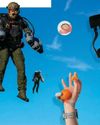
BBC Science Focus
TECH TO TURN YOU INTO A CYBORG
A future where humans can lift incredible weights, see in the dark and fly sounds far-fetched, but actually... it's already here
3 min |
July 2025

BBC Science Focus
HOW TO BEAT THE AFTERNOON SLUMP
Recent research is revealing what's causing your post-lunch lethargy, why it stalls your productivity and the best ways to get your brain back into gear
8 min |
July 2025

BBC Science Focus
Does having a 'dog baby' make us happier than having a human baby?
While fertility rates across the world are falling, more and more of us are choosing to parent pooches
5 min |
July 2025

BBC Science Focus
EDITOR'S PICKS...
This month's smartest tech
2 min |
July 2025
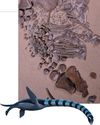
BBC Science Focus
Decades-old sea monster mystery solved
Discovered in the 80s, the creature was unlike anything scientists had seen before
1 min |
July 2025

BBC Science Focus
Should my next boss be an artificial intelligence?
Humans are emotional, irrational and biased. Hardly an ideal recipe for running a company. So would an AI do a better job?
5 min |
July 2025
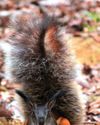
BBC Science Focus
THE TUFTED GROUND SQUIRREL
You know when you stare at cute things for too long and they start to look creepy? I'm thinking garden gnomes, baby dolls, any child in a princess outfit and all cats. Well, now there's another one to add to the list.
2 min |
July 2025

BBC Science Focus
WHAT OUR ANCESTORS ACTUALLY ATE
Our hunter-gatherer forebears weren't the carnivorous cavemen we once thought. Which makes trying to build a diet based on what they ate not only unwise, but practically impossible
9 min |
July 2025

BBC Science Focus
Only one country in the world produces all the food it needs
All other countries are vulnerable to the effects of war, natural disasters and trade disputes on their food supply
2 min |
July 2025
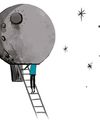
BBC Science Focus
Research team 'puzzled' by strange activity inside the Moon
Scientists may have discovered why the two sides of the Moon look so different
1 min |
July 2025

BBC Science Focus
Common vitamin supplement could slow ageing
Vitamin D may protect cells from age-related decline
1 min |
July 2025
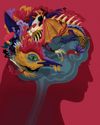
BBC Science Focus
WE NEED TO TALK ABOUT INTRUSIVE THOUGHTS AND HOW TO HANDLE THEM
Disturbing ideas occur to all of us. But what happens if you're struggling to let those thoughts go?
8 min |
July 2025
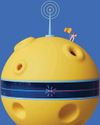
BBC Science Focus
WHAT IF WE BUILT A SUPER-COLLIDER AROUND THE MOON?
Somewhat surprisingly, scientists and engineers have indeed considered putting a super-collider on the Moon. Such a machine would operate just like the Large Hadron Collider (LHC), at CERN, near Geneva, the world's largest and highest-energy particle accelerator. These 'atom-smashers' create two particle beams travelling in opposite directions through ultrahigh-vacuum rings. Strong superconducting electromagnets accelerate the beams to almost the speed of light. The beams are then allowed to collide in one of the detector instruments, creating a cascade of other particles which are then measured and analysed.
1 min |
July 2025
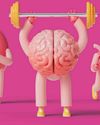
BBC Science Focus
HOW MUCH WILL EXERCISE CONTROL MY BLOOD PRESSURE?
High blood pressure is a major health concern, increasing the risk of heart disease, stroke and kidney problems. As a GP, I'm often asked how to manage it, and my advice always includes exercise. But how much is enough?
1 min |
July 2025
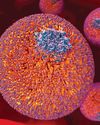
BBC Science Focus
New cholesterol treatment can cut levels by 69% after one dose
The future of heart attack prevention could be a single injection
2 min |
July 2025
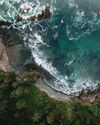
BBC Science Focus
'Doomsday tsunami' is ready to strike the US
A 100ft mega tsunami could hit the US at any moment - and that's only the beginning
5 min |
July 2025
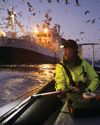
BBC Science Focus
It's behind you!
Audun Rikardsen is on the hunt for whales. Don't worry, though, his intention isn't to kill them. He and his crewmate Emma Vogel (behind the camera) are looking to tag the massive sea mammals, so their movements can be tracked and their behaviour better understood.
1 min |
July 2025

BBC Science Focus
Here's what could happen to your teeth if fluoride disappears from drinking water
Dental experts are sounding the alarm about removing fluoride from drinking water. But how much of an impact will the ban actually have?
5 min |
July 2025

BBC Science Focus
DEFENDERS OF EARTH
Meet the people who keep watch for world-ending asteroids
9 min |
July 2025
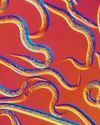
BBC Science Focus
COULD SCIENTISTS UPLOAD AN ANIMAL BRAIN TO A COMPUTER?
The answer to this depends on what you mean by 'upload' and 'brain'.
2 min |
July 2025

BBC Science Focus
WHAT'S THE BEST POSITION TO SLEEP IN?
There are plenty of claims about the “best” sleep position — for example, it’s often thought that sleeping on your left side aids digestion.
1 min |
July 2025
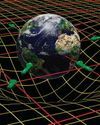
BBC Science Focus
New theory could finally make ‘quantum gravity' a reality... and prove Einstein wrong
A united Theory of Everything is the 'Holy Grail of physics'
3 min |
July 2025
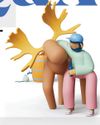
BBC Science Focus
CAN ANIMALS GET DRUNK?
It's not hard to find stories of animals getting tipsy. A moose in Sweden was found with its head stuck in a tree after being seen staggering around, eating fermented apples. Elephants in Botswana getting drunk on marula fruit. My pet rat, who would knock over my home brew and then lick up the spillage. They all seemed inebriated, but were they?
1 min |
July 2025

BBC Science Focus
HOW CAN I FIND OUT IF I SMELL?
We all stink some of the time, when bacteria get stuck in the sweat produced by our apocrine glands.
1 min |
July 2025
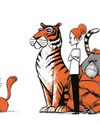
BBC Science Focus
Ginger cats are genetic freaks
On top of being certified agents of chaos, orange cats are now officially DNA freaks
1 min |
July 2025
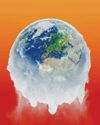
BBC Science Focus
CHILL OUT EARTH
Geoengineering has long been a taboo subject in scientific circles. But as Earth's climate continues to warm, experts are increasingly wondering if we could, and should, take more drastic action and start tinkering with the planet in the hope of saving it
9 min |
July 2025

BBC Science Focus
SOLITUDE SOLUTIONS
Shut the door, switch off your phone. Science says being alone is good for us
3 min |
